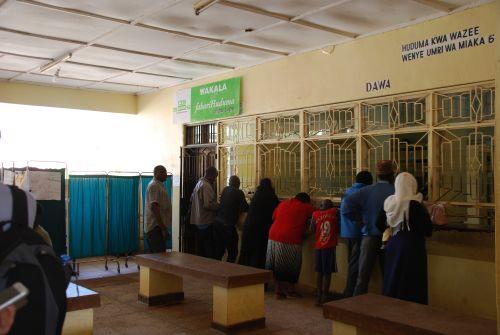Health systems governance for an inclusive and sustainable social health protection in Ghana and Tanzania

The project intends to address two related public health challenges in Ghana and in Tanzania: how can the excluded population be better identified and reached to be included in financing protection mechanisms and how can accountability mechanisms and civil society improve health system governance to support the implementation of inclusive and sustainable social health protection systems.
About the project
Background
Social health protection through Universal Health Coverage is the aspiration that all people will obtain the quality health services they need while not suffering financially as a result of seeking health care. For the poorest countries, the greatest challenge is not only reaching the people so far not benefiting from quality health services, but also guaranteeing that their financial situation is not worsened by having to pay for the services they receive. In addition, in Low Income countries millions of people do not obtain the health services they need for many reasons – they are unavailable; poor quality; people, particularly the poor, are unaware of their entitlements; people do not trust the health system; or there are financial and non-financial barriers to accessing health services that lead to exclusion.
In Ghana and Tanzania the major challenges are to understand how to increase and sustain coverage, expand the benefits package for people in the informal sector, and ensure effective coverage with services and financial risk protection to the poorest segments of the population. In addition to the need for more funding, it is important for both countries to develop effective approaches to define eligibility criteria and better identify and target the excluded poor, and to ensure that the rights of citizens who are less likely to be covered are properly addressed. This requires health system governance conducive and responsive to all population groups. Yet, governance in health systems design is rarely studied and little is known about how civil society can improve governance and coverage of social health protection.
Objectives
The project will address questions framed by four broad objectives:
- To identify who is currently excluded from effective coverage of health services and financial risk protection in the current Ghanaian and Tanzanian social health protection systems, why, and the cost implications of extending coverage with needed services.
- To investigate how the poor and vulnerable groups can be better identified and reached to include them in financing protection mechanisms.
- To characterize how health systems governance can be improved to support an inclusive social health protection.
- To empirically test interventions aimed at improving health system governance, increasing the transparency and accountability of health systems, with regard to their effectiveness in extending social health protection.
Relevance
The project will have impact at several levels contributing to increase access to higher quality, more accountable and better governed health services in Tanzania and Ghana and ultimately helping to achieve the upcoming health-related Sustainable Development Goals (SDG) targets, which will shortly be released by the United Nations.
Geographic scope
- Ghana
- Tanzania
Project website and links to P3
Link to project website
Links to project phase
) and to project phase
) on SNSF research database P3
